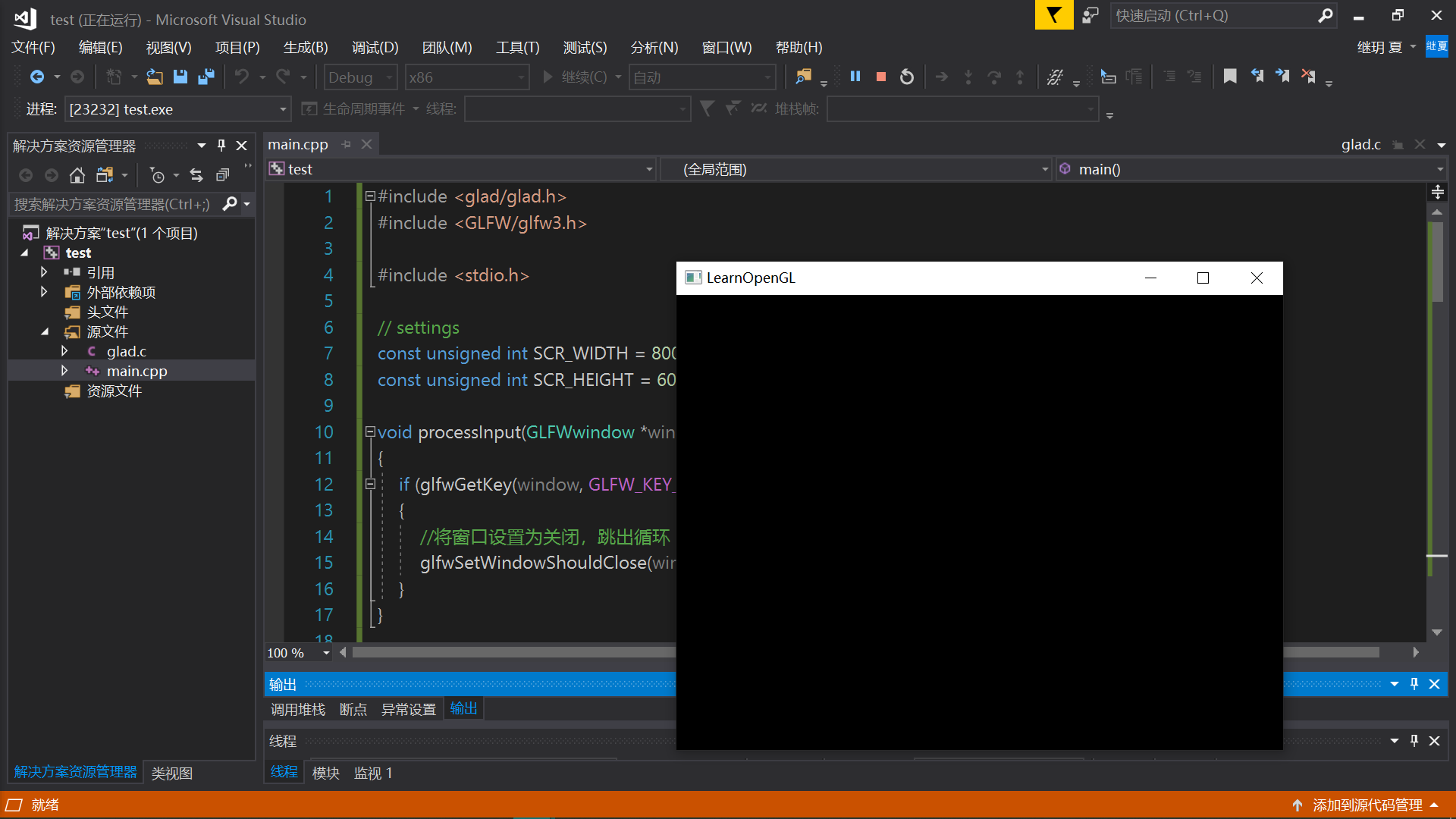OpenGL学习(1)—— 测试OpenGL环境是否搭建成功
一个用来验证OpenGL(glfw + glad)环境是否搭建成功的测试代码
内容为生成一个小窗口
#include <glad/glad.h>
#include <GLFW/glfw3.h>
#include <stdio.h>
// settings
const unsigned int SCR_WIDTH = 800;
const unsigned int SCR_HEIGHT = 600;
void processInput(GLFWwindow *window)
{
if (glfwGetKey(window, GLFW_KEY_ESCAPE) == GLFW_PRESS)
{
//将窗口设置为关闭,跳出循环
glfwSetWindowShouldClose(window, true);
}
}
void framebuffer_size_callback(GLFWwindow* window, int width, int height)
{
glViewport(0, 0, width, height);
}
int main()
{
//glfw初始化
glfwInit();
glfwWindowHint(GLFW_CONTEXT_VERSION_MAJOR, 3);
glfwWindowHint(GLFW_CONTEXT_VERSION_MINOR, 3);
glfwWindowHint(GLFW_OPENGL_PROFILE, GLFW_OPENGL_CORE_PROFILE);
//glfw创建窗口
GLFWwindow* window = glfwCreateWindow(SCR_WIDTH, SCR_HEIGHT, "LearnOpenGL", NULL, NULL);
if (window == NULL)
{
printf("创建窗口失败");
//终止
glfwTerminate();
return -1;
}
//显示窗口
glfwMakeContextCurrent(window);
//设置回调,当窗口大小调整后将调用该回调函数
glfwSetFramebufferSizeCallback(window, framebuffer_size_callback);
// glad初始化
if (!gladLoadGLLoader((GLADloadproc)glfwGetProcAddress))
{
printf("加载失败");
return -1;
}
// 使用循环达到循环渲染效果
while (!glfwWindowShouldClose(window))
{
//自定义输入事件
processInput(window);
//交互缓冲区,否则显示空白
glfwSwapBuffers(window);
//输入输出事件,否则无法对窗口进行交互
glfwPollEvents();
}
//终止渲染 关闭并清理glfw本地资源
glfwTerminate();
return 0;
}
如图所示,搭建成功,可以正常运行

Debugging is twice as hard as writing the code in the first place. Therefore, if you write the code as cleverly as possible, you are, by definition, not smart enough to debug it.


